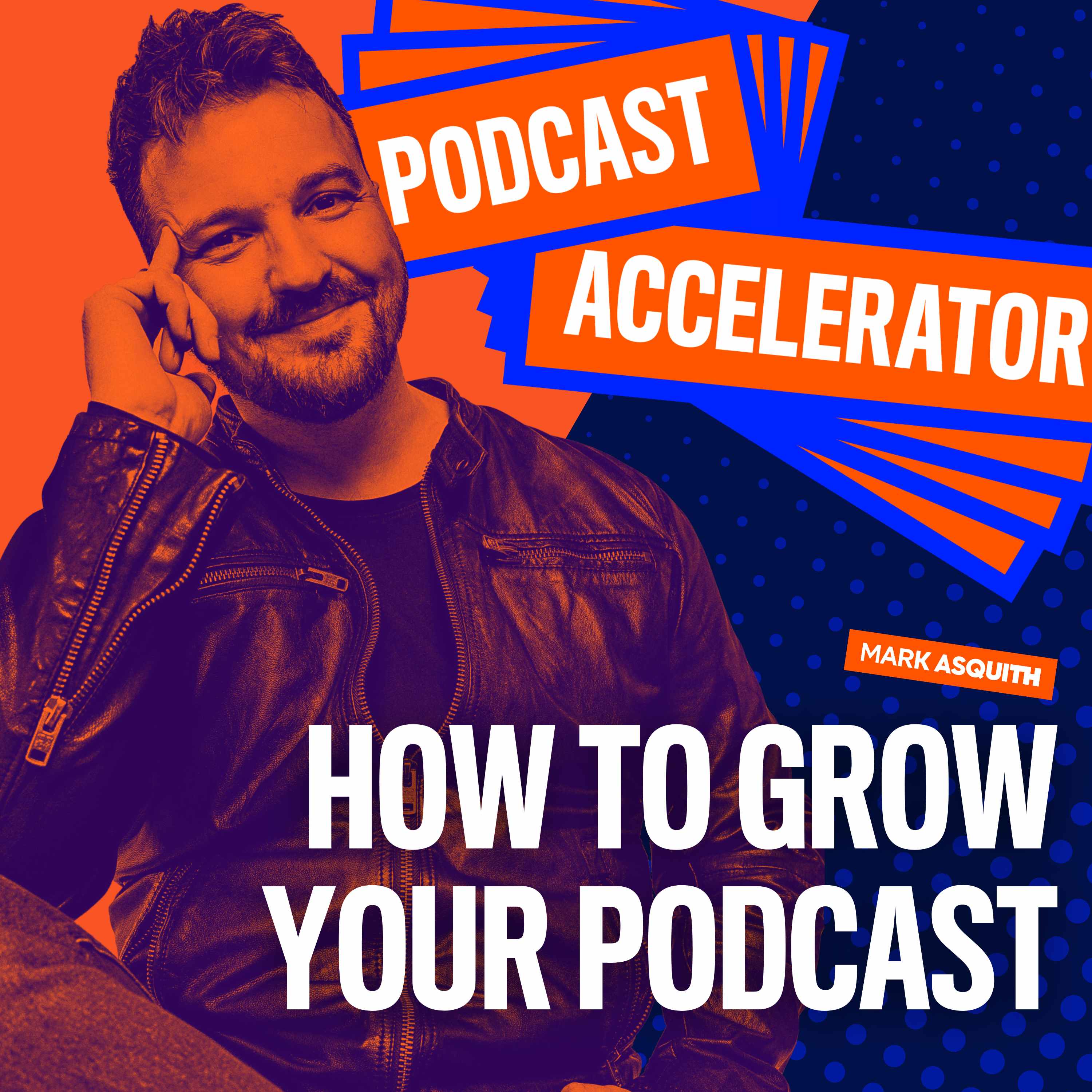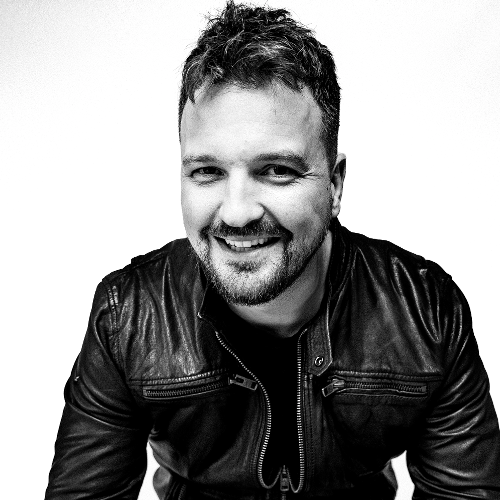How to Grow Your Podcast by Being a Human
We can't ask listeners to make us their number one, must-listen podcast choice without giving them a reason to do so.
In fact, podcasters like you and I fall into a trap of expecting listeners to do too much for us as soon as they've begun to listen to our podcast. We ask them to share, to subscribe (follow, now!) and to review our podcast "if you like it".
The problem is, there's no structure to any of it.
It's something that we fall into because it's what every other podcaster does. I'm not even sure we know why we ask for a Podchaser review; why do we want someone to press "follow" or (deprecated) "subscribe" in their podcast app "of choice"?
What's the point?
Stop for a second and try to answer that.
If you did spend a second thinking on it you'll have come to the same conclusion as I did: we want a review because we think it'll help new listeners to choose the show and listen to us; we want someone to press "follow" so that they get new episodes directly sent to them when we publish them.
These are actions that the listener takes to benefit us. They don't benefit the listener and, whilst a fan or longer-term supporter of your show will feel good about leaving a positive review, these are things that we internally class as marketing activity.
I'm not telling you to stop doing these things. I'm asking you to think about why you do them so that we can begin to think differently about people, together.
People are the core of podcasting. They always have been and they always will be. It's a human being (or team of) that creates an episode, it's a human being that consumes it and it's a human being that tells another human being to listen to it.
All of the calls to action that we add to our podcast benefit us as podcasters. That's fine. The problem is that they're the only things that we ask of our listeners and we do that because we believe that we've delivered so much time and value during the production of our episode - "Hey it's free, isn't it!" - that we feel it's ok to ask for something in return.
My view is that we can do that but if we want to scale it, we have to put a focus on interacting with our listeners much more.
Think about this: in podcasting we measure downloads, we ask for subscribers/followers but we want actual people as listeners.
We believe that because someone listens to our show, it is enough to class them as a fan.
It's not.
A fan is someone who advocates for you, who shares your content and tells the world about you without you asking them to.
To create fans, your podcast has to be one of, or a combination of, two things: 1. SO good it hooks people. 2. Accessible enough that they feel part of the community.
I have no doubt that your podcast is good. But it's not Serial or Business Wars - nor is mine - because we don't have the time or budget to make it that outstanding. That's alright, no one expects us to.
Our advantage is that we can make our podcast accessible enough that listeners feel like they're a part of the show and, once they feel that way, they'll be more open to doing the things that we ask them to and connecting other people to our content as fans, not listeners.
In short: if we can connect to more people and help them to connect us to more people in their circles, our downloads will naturally grow as new people discover our show.
How to grow your podcast by being a human.
Indie or hobbyist podcasters don't have marketing budgets.
Fact.
This is partly why we ask a lot of our listeners: we need them to help us to reach new people because our options are limited when we have no budget.
The mindset that many podcasters have - "Hey, I create free content for you, the least you can do is do what I ask you to in return." - is flawed, though.
We chose to create a podcast because we wanted to.
Even if we had no listeners, we'd want to talk about the things we want to talk about - I would, would you? - it's not fair on the listener to expect them to "pay" in kind for the content that we chose to create because they enjoy it.
We need them to but we shouldn't expect it. We should nurture it.
Luckily, growing your podcast by being human doesn't require budget, it needs focused time.
There are three specific actions that I'd recommend to you that, if given focus and consistency, will help you to grow your audience through personal relationships.
Simplify the technology
There's nothing more confusing than asking listeners to do one of several things.
"Leave a review on Podchaser or on your podcast app of choice, visit my website for this amazing lead magnet and remember to subscribe in your podcast app and tell your friends to listen!"
That's an earful and instantly makes me wonder what the thing that you want me to do is.
It assumes that you're categorising every listener as the same type of listener and that each listener will want to do the same thing.
That's not the case. Listeners will act when they want to act and need something memorable to act upon.
A litany of calls to action is neither memorable nor simple to execute when the listener finally gets around to doing something to help you.
I have three remedies for this.
Firstly, a simple option.
Rather than asking a listener to listen in "your podcast app of choice", use your Captivate single promotional link.
This is a link that comes with your Captivate podcast hosting account and that includes links to all the podcast directories that your podcast is available in.
A listener can choose their directory of choice and you can access analytics on traffic through that link.
The single promotional link takes the format of yourdomain.com/listen (mine is https://www.markasquith.com/listen) and gives you a simple way of saying "Choose the podcast app that you want to listen in" but with a clear, memorable action point.
The second option is also simple but more curated: choose ONE call to action with ONE specific result in mind.
For example, I may say, "Hey, if you're new to the podcast then I recommend that you follow it in your podcast app and listen to the back catalog at your leisure. I'd recommend episode 27 and you can get that at markasquith.com/257 on the web."
I like this because it gives the listener a chance to sample another episode of your podcast and, if you're keen to grow, you should be looking at your past analytics to pick the single most popular episode of your podcast to include in this call to action, because that's the one that previous listeners have downloaded the most and so it must be really useful or fun.
In a similar vein to the first idea, this gives listeners a simple way to remember what to do but you're curating their next step in a way that will help to embed them into your content.
The third option is a more complex one but ideal for those with WordPress or self-maintained websites.
Podcasters always have a range of things to promote as we saw countless times in that litany of calls to action earlier.
The problem is that by reeling them off, none of them remains memorable.
I love the idea of creating a "Start Here" page on your website that curates all of your calls to action into subsections and means that you can ask people to go to one page (yourdomain.com/start) which remains memorable for the listener but satisfies our podcasting FOMO by making sure they have everything that we want them to see right there.
They can then choose the one or two things they want to do from there during any given visit.
This is something we included as part of our Podcast Websites managed WordPress service - every site had one and it works SO well.
Choose one social network and be there a lot.
I do understand the desire and recommendation to "be everywhere" but you can't be everywhere well when you're splitting your focus.
If you're limited on time or budget then pick one social network and guide your listeners there. I use Twitter more than any social network because it means I can talk to people (the social part, right!) and if you're growing your podcasting audience through personal relationships, that part is vital.
I'd recommend choosing your favourite social network - I say favourite because if you hate it, you aren't going to use it - and telling listeners that's where you'll be hanging out and having conversations.
Make it clear to them that they can speak to you there, they can ask questions and they can expect you to get back to them every single time.
This is something that will require consistency but that works.
You can't let them down, though. You have to reply and engage with people as you would in person.
Remember, the old marketing adage of making sure people know, like and trust you means that being consistently present is vital and shouldn't diminish with time.
Create a "presence promise".
Being present is one of the most powerful strategies that you can use to build your audience.
Back in 2014, I created something that I call a "presence promise" - a promise to be present in one place and one time, every single week - and
I've done it ever since.
Every Friday at 11 am Eastern I deliver free podcast coaching. I've built genuine friendships with people who went on to listen to my podcast; I've built friendships with people who listened to my podcast who came to the live sessions regularly.
That time slot and location is something that I'm now known for and people who attend know that they can come along without any expectation or obligation to buy something or subscribe to/follow something.
This is a simple, cheap and powerful way of building strong relationships with your audience and prospective listeners. What's useful about this approach is that the questions that you receive during these type of sessions can be used to inform podcast episodes - that's how I get the questions for my Friday episodes and during each of those podcast episodes I give the person who asked a shout out and a thank you.
It works because it's genuine.
People > downloads.
We measure downloads but we respect and appreciate people.
Focus on being a human being and connecting yourself to as many other human beings as possible. Your podcast will grow because of it.
And it's free.
This podcast uses the following third-party services for analysis:
OP3 - https://op3.dev/privacy
Podcorn - https://podcorn.com/privacy
Podtrac - https://analytics.podtrac.com/privacy-policy-gdrp





